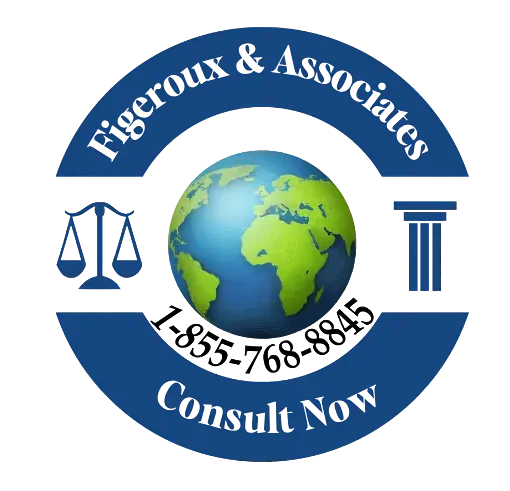By Brian Figeroux, Esq. | Photo Copyright IQ INC.
Estate planning is often viewed as something only the wealthy need to worry about, but this misconception leads many individuals and families to make critical errors that can have serious legal and financial consequences. With DIY tools and templates now available online, many people attempt to draft wills or create trusts without professional legal guidance. However, estate planning is a complex area of law governed by state-specific statutes, tax codes, and probate court procedures. When done incorrectly, these documents can be invalidated, misinterpreted, or challenged—often resulting in costly litigation, delays, or unintended disinheritance.
Here are the top 10 mistakes laypeople make when they do not hire a professional wills, trust, and estate planning attorney:
- Failing to Comply with State Law Requirements
Each state has specific requirements for the execution of wills and trusts, including how many witnesses are required, whether notarization is necessary, and who can serve as a witness. Laypeople often use generic templates that may not meet the legal requirements in their jurisdiction. The result? A will or trust that is declared invalid during probate.
Legal Impact: If a will is deemed invalid, the estate will be distributed according to intestacy laws, not the deceased’s wishes.
- Misunderstanding the Difference Between Wills and Trusts
Many people conflate wills and trusts or choose one without understanding the implications. A will must go through probate—a public and often costly process—whereas certain trusts, like revocable living trusts, avoid probate entirely. Laypeople may select the wrong tool for their goals or fail to fund their trust properly.
Legal Impact: Improper planning may result in unnecessary court involvement, taxation, or delays in asset distribution.
- Not Addressing Contingencies
DIY estate plans often lack provisions for alternate beneficiaries, guardianship backups, or successor trustees. Without contingencies, the estate plan can fail if the named individuals predecease the testator or are otherwise unavailable.
Legal Impact: Courts may need to intervene to appoint guardians or distribute assets, increasing costs and causing family conflict.
- Ignoring Tax Consequences
Estate planning isn’t just about asset distribution; it’s also about minimizing tax liability. Without proper legal guidance, individuals may overlook strategies for reducing estate, gift, or income taxes. For example, improperly structured trusts or large lifetime gifts may create avoidable tax burdens for heirs.
Legal Impact: Beneficiaries may be left with sizable tax bills or the estate may be reduced by avoidable tax obligations.
- Leaving Out Important Assets or Beneficiaries
Many DIY wills fail to include a complete inventory of the testator’s assets or fail to name all heirs. This oversight often stems from a lack of estate planning knowledge or poor document templates that don’t prompt comprehensive disclosure.
Legal Impact: Unlisted assets may pass through intestacy, while omitted beneficiaries can challenge the will and trigger costly litigation.
- Naming the Wrong People in Fiduciary Roles
Laypeople often name family members or friends as executors or trustees without considering their ability, location, or willingness to serve. A professional attorney can help assess whether those choices are appropriate and suggest alternatives.
Legal Impact: An unqualified or disinterested fiduciary may mismanage the estate, face lawsuits, or be removed by the court.
- Not Planning for Incapacity
Estate planning isn’t just about death; it also involves planning for incapacity. DIY plans frequently omit essential documents like durable powers of attorney and health care proxies. Without these, families may need to go to court to obtain guardianship or conservatorship.
Legal Impact: Loved ones may be locked out of making critical financial or medical decisions in an emergency.
- Over-Reliance on Joint Ownership or Beneficiary Designations
Some people attempt to avoid probate by placing children on property deeds or designating beneficiaries on all accounts. While this can bypass probate, it often creates tax issues, gift tax implications, or unintentionally disinherits other heirs.
Legal Impact: The estate plan becomes inconsistent, potentially triggering family disputes or legal challenges.
- Not Updating the Plan After Major Life Changes
Life events such as marriage, divorce, childbirth, or the death of a beneficiary necessitate updates to estate plans. Laypeople often forget to revisit their documents or update their plans accordingly.
Legal Impact: Outdated plans may benefit ex-spouses or disinherit new family members, contrary to the testator’s current wishes.
- Underestimating the Emotional and Legal Complexity of Estate Litigation
Finally, many believe a basic will is enough and overlook the potential for conflict among beneficiaries. A professional attorney anticipates potential disputes and includes conflict-resolution mechanisms like no-contest clauses or trust protectors.
Legal Impact: Lack of foresight can lead to will contests, family estrangement, and the unnecessary depletion of estate assets through prolonged litigation.
The High Cost of Going It Alone
Estate planning is not a one-size-fits-all process. When laypeople attempt to handle it without professional guidance, the results often include invalid documents, unintended disinheritance, and costly court battles. A licensed estate planning attorney brings expertise in state law, tax strategy, family dynamics, and future planning that a template or online tool simply cannot offer.
A well-drafted estate plan is a final act of love and responsibility. It ensures that your wishes are honored, your loved ones are protected, and your legacy is preserved. Don’t leave that to chance. Invest in professional legal counsel—because when it comes to your estate, peace of mind is worth the price.
Consult with the Estate Planning, Wills & Trusts Law Firm of Figeroux & Associates. Call 855-768-8845 or visit www.askthelawyer.us to schedule an appointment.
Click Here to Schedule a Consultation with Figeroux & Associates Today!


